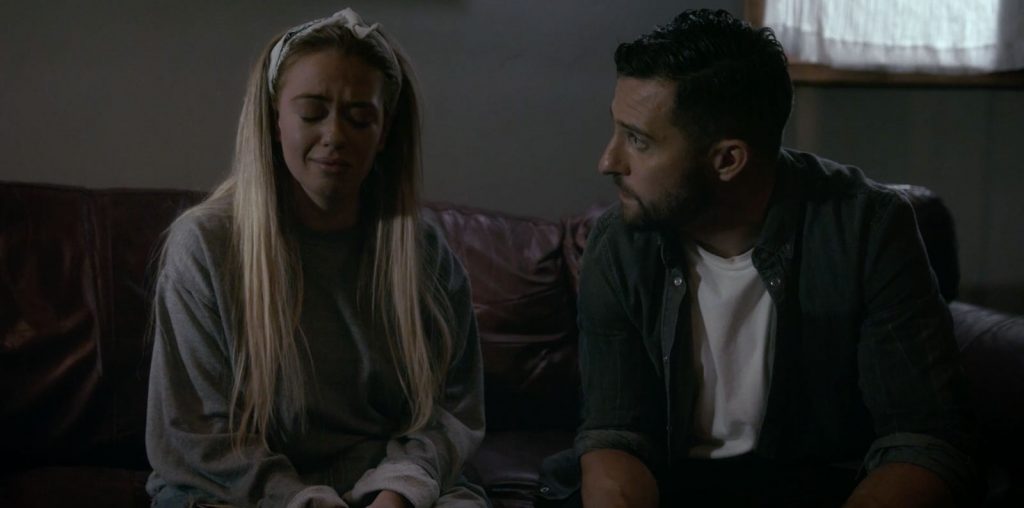
“I didn’t really have any idea I’d respond to the film this way,” says author Mavis Jukes, wiping away a flood of tears as the end credits roll on the unexpectedly moving—and surprisingly satisfying—Harry Potter and the Prisoner of Azkaban, based on the book by J.K. Rowling (Which Jukes, by the way, has never read). “But,” Jukes says, somewhat recovering her composure, “I will thank this writer and the people who made this film for the rest of my life, because for once someone has portrayed teenage kids with respect and appreciation, showing the power they can have to act with courage and integrity. Just for that reason alone, I’d love for every kid in the eighth and ninth grade to see this movie. It’s very powerful.”
No kidding. For the record, Jukes isn’t the only one who’s all choked up. “Um . . . I can’t talk,” I tell her, my voice cracking with a fit of emotion I would not have predicted I’d be treated to. Blame the final 30 minutes of Azkaban (imagine an especially sly, above-average Hallmark card, but with magic and mayhem and mystical flying beasts), and also the well-crafted cinematic moment when Harry, the orphaned teen-age wizard, while battling evil, soul-sucking dementors, discovers that he’s a much more powerful wizard than he’d ever believed himself to be. It is a sequence of events that, according to Jukes, actually made her skin crawl.
The author of numerous award-winning fiction books for children (Blackberries in the Dark, Like Jake and Me, Expect the Unexpected, No One is Going to Nashville, Cinderella 2000), Jukes also created a phenomenally bestselling series of influential, very-funny health guides for teens and pre-teens, including It’s a Girl Thing: How to Stay Healthy, Safe and In Charge, The Guy Book, and Be Healthy! Food Fitness and Feeling Great. She knows what makes kids tick, and what gets under their skin, but was unprepared for the way this new Harry Potter film got under her own skin.
“It was amazing and weird, that sensation I had at that precise moment in the film,” she says. “It was like the hair standing up all over, my skin got all prickly, it was like my skin actually crawled. I guess that really happens to people but I’ve only read about it. So there’s another surprise—my first official skin crawling moment happens at age 56, in a Harry Potter movie, when Harry figures out that the power he thought was centered in another is actually coming from himself.”
Okay, okay.
This is technically nothing new. Discovering the “power within” is a theme that’s been explored in zillions of stories since the beginning of time, but the way it plays out here is, um, very effective.
“For kids,” Jukes points out, “this can be a pretty astounding revelation. I think Harry’s magical powers are a metaphor for his inner strengths. Kids don’t know how much power they can have, or how to use their strengths. I think the reason you and I reacted so emotionally to that scene, is because it was reminding us of what it was like to discover our own inner power, that whatever-it-is, that whatever-it-takes, that comes from inside us, that makes it possible to do what we sometimes doubted we could accomplish.”
“Agreed,” I reply. “But what exactly is that ‘power’ that we’re talking about? What would you tell a kid who asked you, assuming Harry’s magic is a metaphor, what’s it a metaphor for?”
“Well, let’s back up and look at what that power does for him in that scene,” Jukes says. “The ‘power’ makes it possible for him repel the most negative, scary, terrifying, threatening imaginings—of course, in the movie they’re not imaginings, they’re real—so I guess the power is . . . the power is . . . What is that power? It’s probably something corny like ‘thinking positively’ or ‘believing in yourself.’ People sing sentimental songs about it, you know, ‘The hero lies in you,’ that kind of thing, but on a personal level, there are no words attached to it, no words that describe it. Inner power is inner power.
“And when you have it, when you’ve experienced it,” she says with a smile, “it really almost is like magic. Isn’t it?”
The film contains other lessons as well.
As Jukes points out, Azkaban gives us a remarkable model of young friendship between the sexes, as shown in Harry’s alliance with fellow wiz kids Hermione and Ron. “It made me think,” says Jukes, “Did you know that I had never been to an all girl basketball game until recently? Then one day I went with my daughter to a high school game, and I watched these amazing young women playing incredible basketball. And then, I was so shocked when I saw the cheerleaders, in their little skirts and pom-poms, cheering for the girls! When I was a teen, girls weren’t even allowed to play little league baseball. The idea that the world has come so far in so few years, without my realizing it, it was so moving to me. In some ways I feel this movie was a similar experience. I didn’t expect to sit down and see a movie about a couple of 13 or 14 or 15 year old kids, of different genders, who care for one another as friends and equals. This movie shows that partnerships between genders can be born early on in life, that they can be so valuable and so true.
“Once again,” she laughs, “I’m blown away by it! Who’d have guessed?”
____________________________________________________________
Writer David Templeton takes interesting people to the movies in his ongoing quest for the ultimate post-film conversation. This is not a review; rather, it’s a freewheeling, tangential discussion of art, alternative ideas, and popular culture.
Discuss David Templeton’s “Talking Pictures” column in Film Threat’s BACK TALK section! Click here>>>
